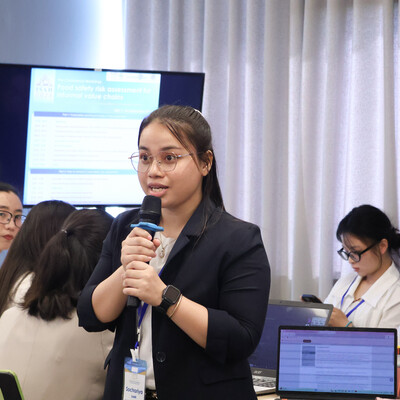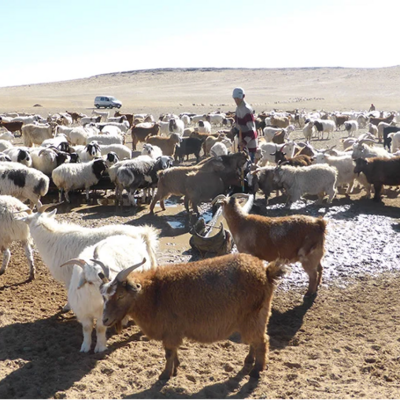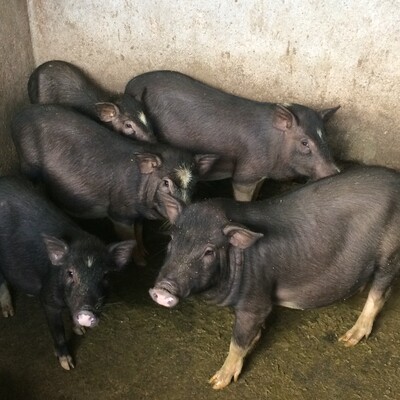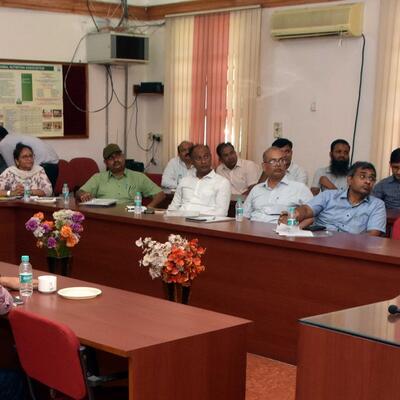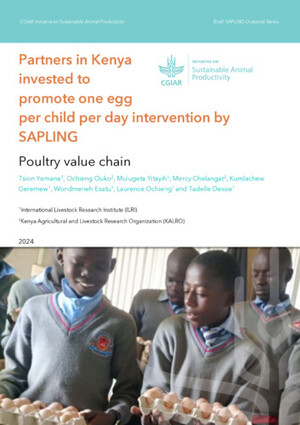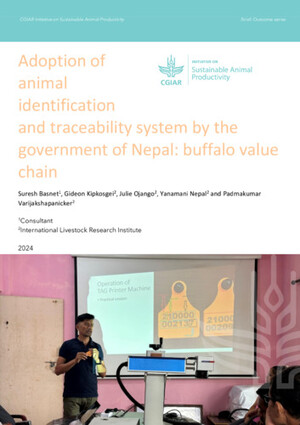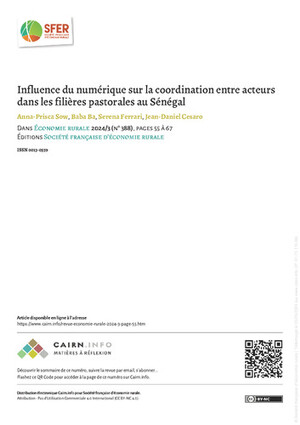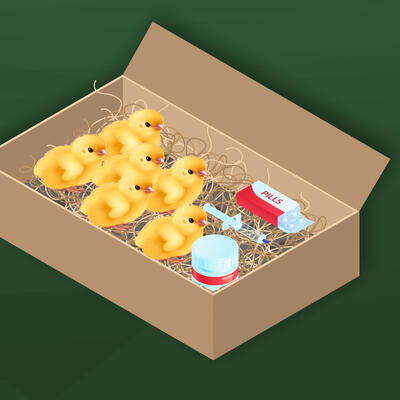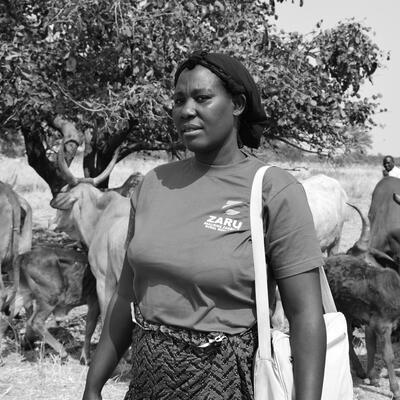
ILRI scientists participate in the African dairy conference
Two senior agricultural economists with the International Livestock Research Institute (ILRI) were among high-profile speakers at the 10th African Dairy Conference and Exhibition held in Nairobi on 24 to 26 September 2014.
Isabelle Baltenweck, interim program leader for ILRI’s Livelihoods, Gender and Impact (LGI) Program and Jo Cadilhon, an agricultural economist in the Policy Trade and Value Chains (PTVC) Program shared on dairy production and the policy and economic issues facing the dairy sector at the conference.
Themed ‘Discovering African dairy, refreshing mind-sets,’ the annual conference brought together more than 600 stakeholders in the dairy industry from across the world to discuss and share knowledge on issues facing the dairy sector. The African Dairy Conference and Exhibition also attracted more than 140 exhibitors comprising all actors along the dairy value chain including research institutes, processors, advisory service providers, credit providers and input and equipment suppliers among others.
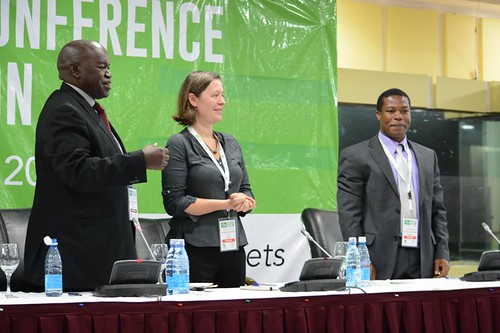
Isabelle Baltenweck (centre) with Kipkirui Lang’at (left) and Assah Ndambi (right) during the African Dairy Conference and Exhibition on 24 September 2014 (photo credit: AFDA).
Baltenweck was a lead discussant during the plenary session that focused on ‘the world dairy production’. In her presentation, Baltenweck shared lessons from facilitating dairy producer organization development in East Africa with a focus on the East Africa Dairy Development (EADD) program in which ILRI is a major partner.
Highlighting ways in which the EADD program is working with dairy producer organisations to assess their sustainability in production and business engagement, Baltenweck engaged the audience with statistics on the stage-gate tool and how the program is using it to help facilitators in the program assess EADD’s progress (or lack of it) and identify interventions to take.
Sustainability needs to be considered right from the start of an intervention
To encourage the sustainability and impact of producer organizations, Baltenweck said that programs and projects, such as EADD, should consider themselves only as facilitators, not implementers, of farmer groups’ objectives. Baltenweck mentioned that using the stage-gate tool, the EADD program has established that it takes an average of seven years for producer organizations to stabilize and attain sustainability, but shorter time when there is clear understanding of the goals between the producer organization and the facilitator from the start.
‘Farmers get together to form producer organizations based on their social networks and links and governance and leadership practices are key drivers of the sustainability of these organizations,’ said Baltenweck.
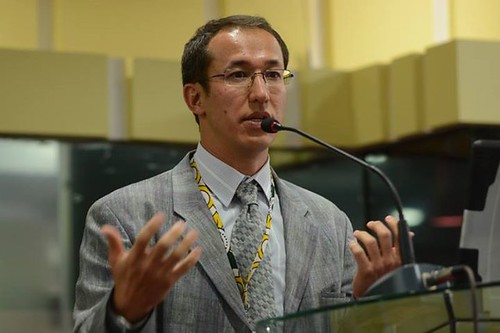
Jo Cadilhon during the 10th African Dairy Conference and Exhibition on 24 September 2014 in Nairobi (photo credit: AFDA).
Jo Cadilhon’s presentation focused on policies and partnerships during a plenary session on ‘dairy policies and economics; unlocking the potential’. Cadilhon’s presentation drew from the results of the African Dairy Value Chain seminar jointly organised by ILRI and the Technical Centre for Agriculture and Rural Cooperation ACP-EU (CTA) on 21 to 24 September 2014. Cadilhon highlighted conclusions from the seminar on policy issues, related to the inclusion of smallholder farmers in dairy value chains, encouraging private sector investment into the African dairy industry and to empowering women and other marginalized groups in Africa through dairy enterprises. Among them, one key recommendation was the need for all stakeholders in the dairy sector to make informed choices for development and sustainability.
Research by ILRI and its partners contributes to informing decision makers’ choices.
See Baltenweck presentation here
See Cadilhon presentation here
See a summary report of the African Dairy Conference here





